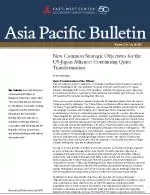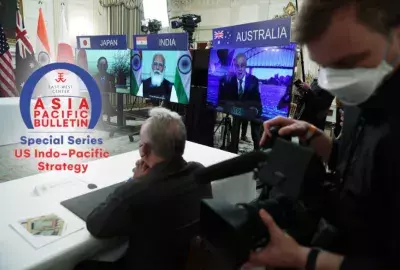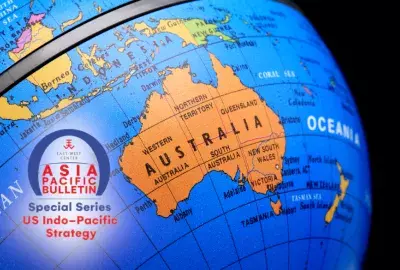Error message

The US-Japan Security Consultative Committee, or the so-called "2+2" meeting between foreign and defense cabinet level officials convened in Washington, D.C. in late June. Media attention centered on the delay of the relocation of the US Marine heliport at Futenma to a different location within Okinawa and the domestic political climate within Japan where Prime Minister Naoto Kan has indicated his intention to step down at an unspecified date. Ryo Sahashi, Associate Professor of International Studies at Kanagawa University, argues that the fact that this meeting successfully revised the joint Common Strategic Objectives is significant as both governments successfully continue to quietly transform their alliance.
|
The US-Japan Security Consultative Committee, or the so-called "2+2" meeting between foreign and defense cabinet level officials convened in Washington, D.C. in late June. Media attention centered on the delay of the relocation of the US Marine heliport at Futenma to a different location within Okinawa and the domestic political climate within Japan where Prime Minister Naoto Kan has indicated his intention to step down at an unspecified date. Ryo Sahashi, Associate Professor of International Studies at Kanagawa University, argues that the fact that this meeting successfully revised the joint Common Strategic Objectives is significant as both governments successfully continue to quietly transform their alliance.
|







